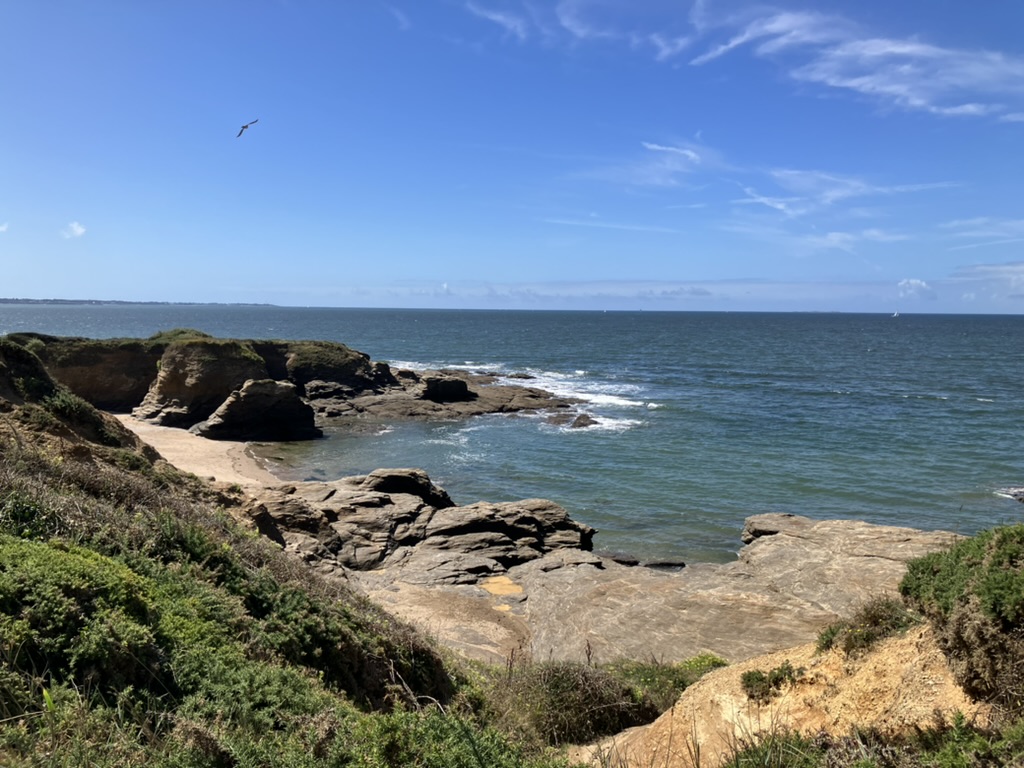
Call for Papers
Internationale Konferenz "Transoceanic Imaginations"
Internationale Konferenz "Transoceanic Imaginations", Universität Konstanz, 30. September–02. Oktober 2024
In humanities research, the oceans are increasingly viewed as sites not only of physical but also symbolic transgressions of territorial, national, regional, cultural and epistemological boundaries, with the ocean itself experiencing increased interest as a site of fluidity (Benítez-Rojo 1989 [engl. 1992]; Glissant 1990; Gilroy 1993; Steinberg 2001; Walcott 1988). This oceanic turn (DeLoughrey 2016) in the humanities and social sciences is taking place against the backdrop of a generally growing interest in “water bodies” such as oceans, but also seas, rivers, archipelagos or lakes (Blackmore/Gómez 2020; Cohen/Quigley 2020; Moraña 2022) and aims to develop an epistemology that understands the ocean as a reconstitution undertaken again and again through non-human and human, biological and geophysical, historical and contemporary aspects (Steinberg 2013: 157). Against this background, recent research has developed a critical paradigm for analyzing collective imaginations from the colonial era to the present under the heading of “hydrocriticism”, which not only takes the historical significance of shipping, ports, island territories or drainage systems as its starting point, but also explicitly considers water and oceanic pathways as metaphorical means (Moraña 2022).
The rejection of nation-state references to place combined with a turn towards transoceanic imaginaries is characteristic of decolonial approaches, particularly in the context of environmental studies (e.g. Rauscher 2023). In this context, geopoetics (White 1989; Maximin 2006; Balasopoulos 2008; Modeen/Biggs 2021) and ecopoetics have emerged as emotional-cognitive references to place that are closely linked to ecological issues. The Scottish-French poet and philosopher Kenneth White, one of the controversial pioneers of the concept (Modeen/Biggs 2021: 23-24), links poetics not only with geography, but also with biology and ecology and describes geopoetics as „a place […] where poetry, thought and science can come together” (White 1989).
Central to both these geopoetic questions in a general sense and oceanic imaginaries in a more concrete sense is the concept of archipelization by the Martinique-born philosopher and writer Édouard Glissant. The notion of archipelization implies a non-systematic and relational thinking that transcends national borders. According to Glissant, in the course of the various phases of accelerated globalization (Ette 2012), transnational regions have formed in which hybridization and creolization processes take place (Glissant 1996). Long before the emergence of environmental studies, Glissant (like the Caribbean writers Derek Walcott and Antonio Benítez-Rojo) theorized the ocean as a place of flows and fluxes beyond the territorial and legal limitations of the state. As a region that looks back on a history of accelerated and condensed processes of globalization, migration and transcultural entanglements (Müller 2012) and in which postcolonial and ecological concerns collide in a particular way (Ferdinand 2019, 2022; Sheller 2020), the Caribbean has thus emerged as a privileged site for geopoetic theorizing. More recently, however, geopoetic and ecopoetic approaches have increasingly been applied to the Mediterranean as well (Kinoshita 2014; Bernhard/Kraske/Nelting 2015; Fabris/Göschl/Schneider 2023). The Pacific (Hau-ofa 1994; DeLoughrey 2007; Torres-Rodríguez 2019; Jetñil-Kijiner/Kava/Santos Pérez 2022) and, not least, the Indian Ocean have also been analyzed and theorized under similar auspices in recent decades. For example, the Mauritian-born poet, filmmaker and cultural theorist Khal Torabully extended Glissant’s Caribbean-centered Poetics of Relation (1990) and the interdependencies it addresses to the Indian diaspora. With his concept of coolitude (Torabully 1992; Carter/Torabully 2002), he attempts to give a voice to those excluded from history who, after the abolition of slavery, had to work as wage and contact laborers worldwide under conditions of extreme exploitation, thus creating a network of places in lyrical condensation that connects the islands and cities of India, China and Oceania with the European colonial ports to form an imaginary landscape (Torabully 1996: 13; Ette 2012, 291-293).
In light of this, the planned conference explores the transoceanic imaginations and the underlying movements of exchange that make the diverse connections between the world’s literatures and cultures manifest. Imaginations charge physical-material places with meanings and concretize themselves in written and oral, acoustic and visual forms of expression through specific (aesthetic) practices that lie on both the production and reception side. In addition to the classic transatlantic focus, against the backdrop of the cultural-theoretical approaches outlined above, particular attention will be paid to imaginations of the transpacific contact between Latin America and Asia, the trans-Mediterranean connections between Europe, Africa and the Middle East, and the exchange between Africa, Australia and Asia that takes place across the Indian Ocean.
The results of the conference will lead to a publication that will be published in 2025 as the programmatic first volume of the series “Transoceanic Literary and Cultural Relations” by Rombach Wissenschaft.
Abstracts for presentations (max. 400 words) are requested by 15.04.2024 to miriam.lay-brander@ku.de and anne.kraume@uni-konstanz.de. Notification of acceptance or rejection of proposals will be made by 30.04.2024. The deadline for submission of essays for the volume to be published will be 15.01.2025. The conference languages will be English, Spanish and French.
Organizers:
Prof. Dr. Anne Kraume (University of Konstanz)
Prof. Dr. Miriam Lay Brander (Catholic University of Eichstätt-Ingolstadt)
